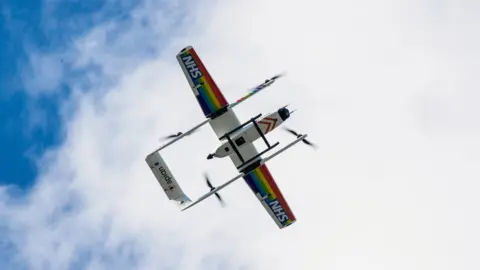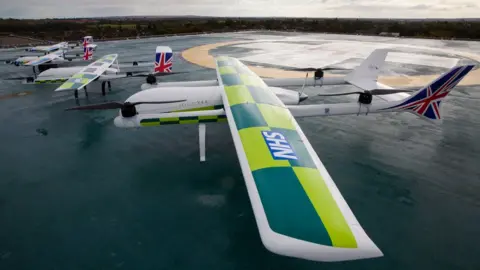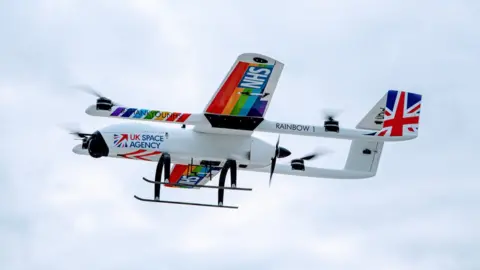Isle of Wight NHS trust trials drones for chemotherapy deliveries
 Apian
ApianDrones could be used to deliver chemotherapy drugs to cancer patients from Hampshire to the Isle of Wight.
A three-month trial researching the benefits of using un-crewed aerial vehicles (UAVs) has been launched by Isle of Wight NHS Trust.
A trust spokesperson said the drones could solve logistical challenges caused by the coronavirus pandemic.
If successful, it's believed the trust would be the first in the world to deliver chemotherapy drugs by drone.
 Apian
ApianMedical drone company Apian, as well as the University of Southampton, Solent transport and Portsmouth Hospitals NHS Trust are all involved in the research.
The island's trust used drones last year during the pandemic for deliveries and has been trialling transporting other medical supplies since March.
Maggie Oldham, chief executive of the trust, said she was "delighted" to be researching a "revolutionary way of transporting life-saving chemotherapy drugs."
She added: "During the Covid-19 pandemic we have faced several challenges, including unprecedented supply chain and logistical demands worldwide and this led to us exploring different ways of working to ensure a safe and efficient service for our patients."
 Apian
ApianResearch on the drones will be carried out until November to see how the impact of flight, like vibration and temperature, affects redundant medicine.
If that proves successful, the Isle of Wight NHS Trust will then approve the first flight for chemotherapy treatment, believed to be the first in the world.
The medical drones will be based at the British Army's barracks on Thorney Island in West Sussex and flown between Queen Alexandra Hospital's helipad in Portsmouth, to Thorney Island and on to St Mary's Hospital's helipad on the Isle of Wight.

Follow BBC South on Facebook, Twitter, or Instagram. Send your story ideas to [email protected].
